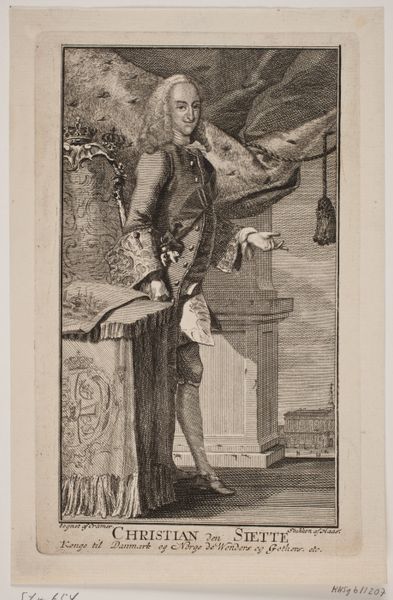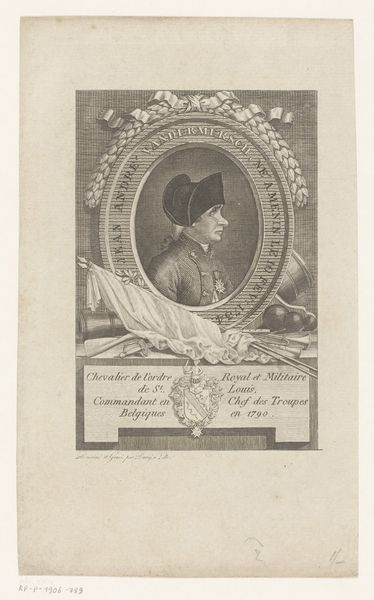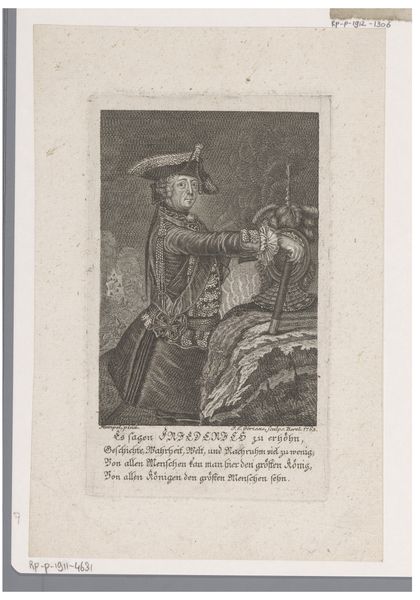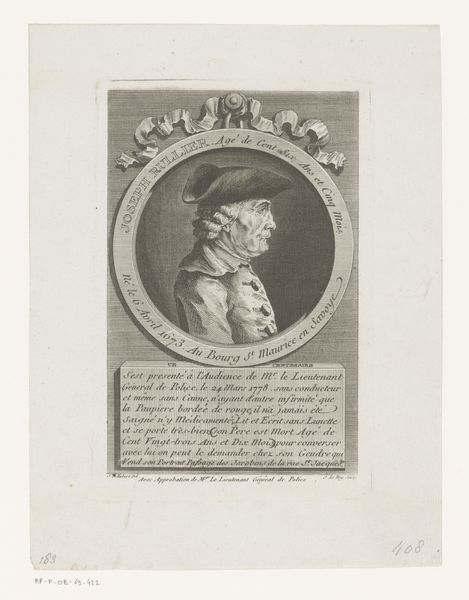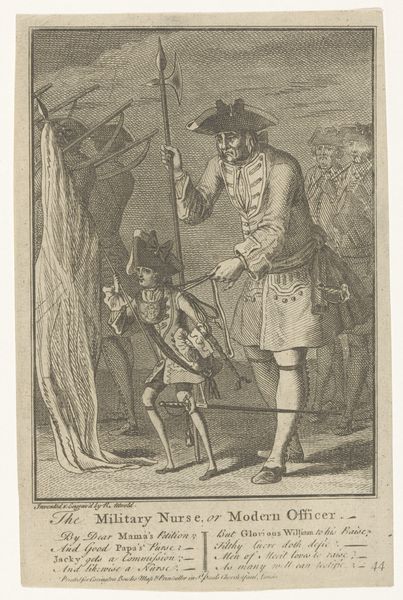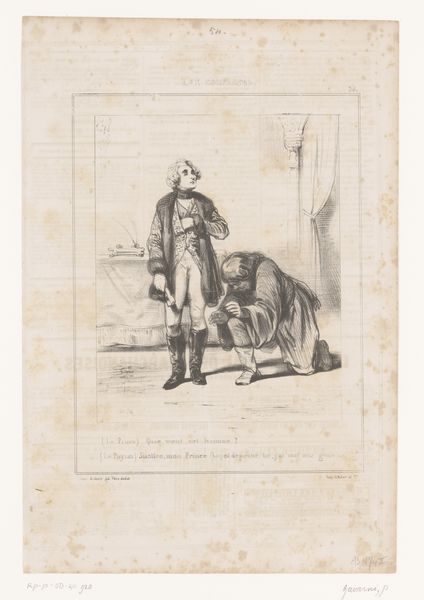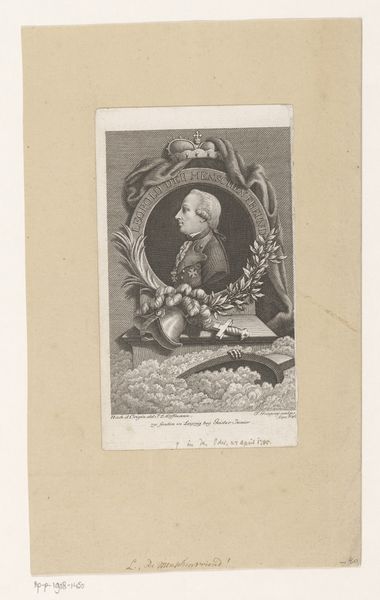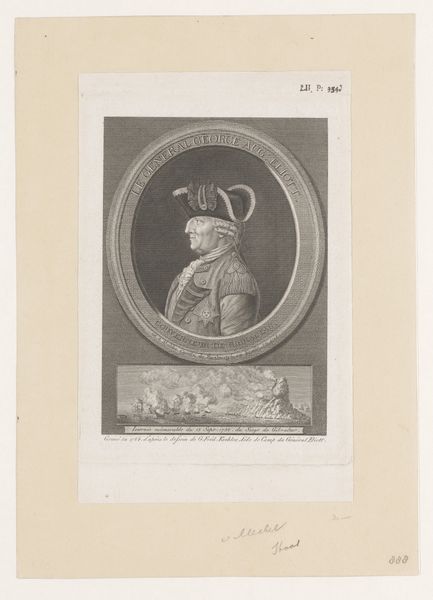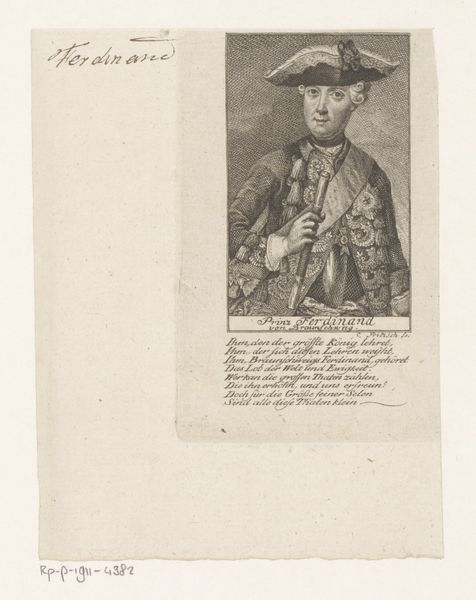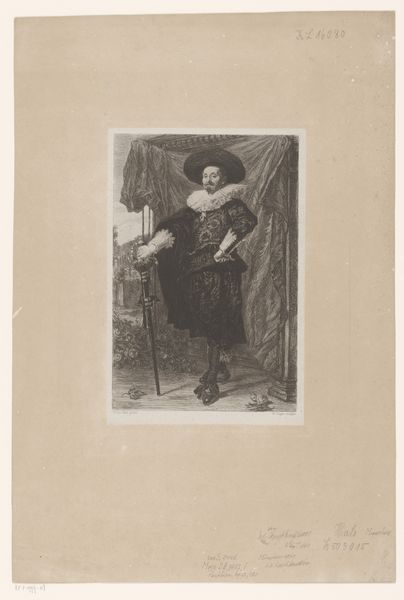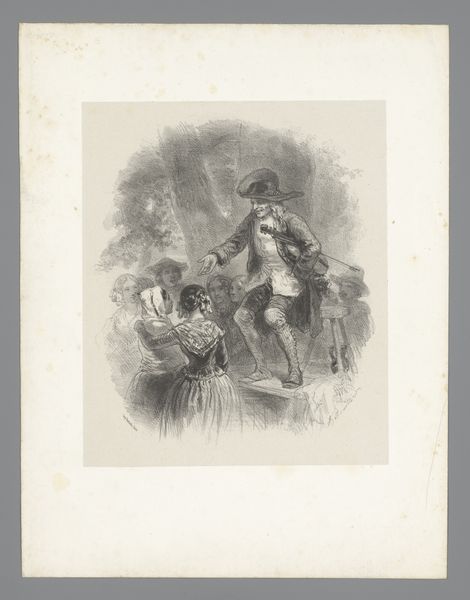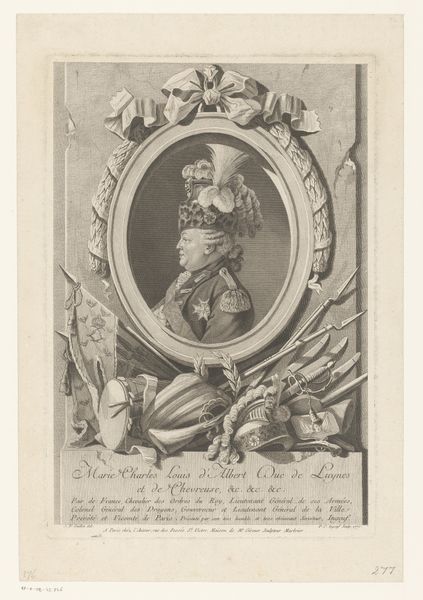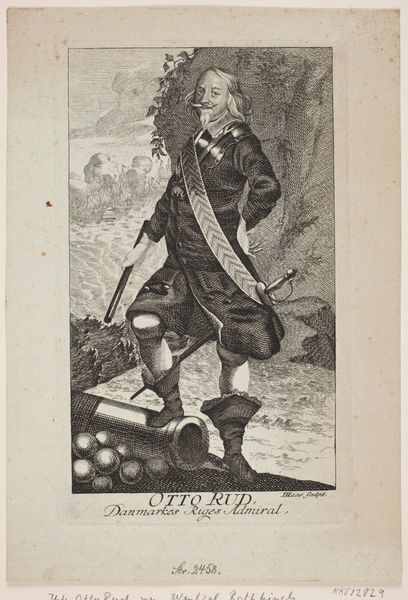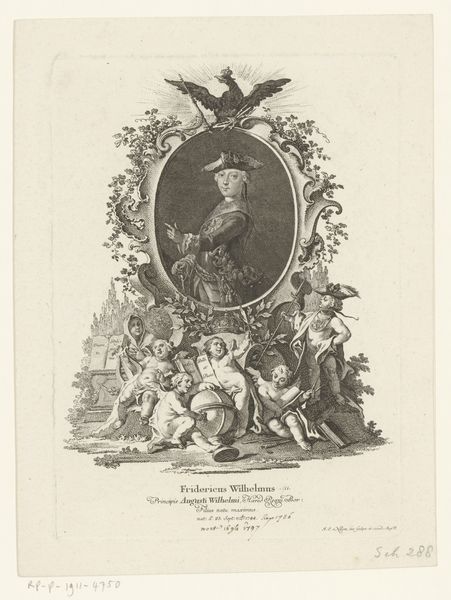
print, etching, engraving
#
portrait
#
baroque
# print
#
etching
#
etching
#
history-painting
#
engraving
Dimensions: height 161 mm, width 95 mm
Copyright: Rijks Museum: Open Domain
Johann Ernst Gericke made this portrait of Frederick the Great in 1760 using engraving, a printmaking technique with a long and potent history. The process involves meticulously incising an image onto a metal plate, which is then inked and pressed onto paper. The fine lines you see, defining the contours of Frederick's face and the details of his uniform, demanded painstaking labor. This wasn't just about replicating an image; it was about translating power and authority into a medium that could be widely disseminated. Engraving was a key technology in early modern Europe, used for everything from scientific diagrams to religious imagery, and of course, propaganda. The very act of reproducing Frederick's likeness through this method imbued it with social and cultural significance. Consider how many hands would have been involved in the production and distribution of this print, extending its reach far beyond the elite circles of the court. By focusing on the material and making of this portrait, we can appreciate how printmaking contributed to shaping public perception and solidifying political power.
Comments
No comments
Be the first to comment and join the conversation on the ultimate creative platform.
